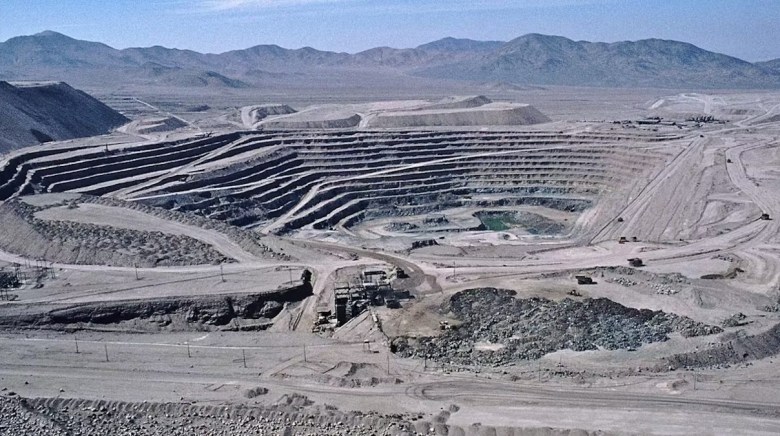Politics
Zimbabwe’s Lithium Potential: Striving for Local Value Amid Challenges

Zimbabwe is recognized as holding the largest lithium reserves in Africa, a resource increasingly vital in the global transition to electric vehicles. The country has historically mined lithium since the 1950s, but a renewed surge in demand has prompted a significant increase in production. Currently, the lithium-ion battery market is valued at approximately US$78.9 billion, with projections estimating it will reach US$349.6 billion by 2034. Despite this potential, the benefits of Zimbabwe’s lithium resources are largely siphoned off by foreign companies, primarily Chinese firms such as Sinomine and Zhejiang Huayo Cobalt.
The lithium rush in Zimbabwe began in earnest in 2021, driven by heightened global interest in the mineral. However, the reality is stark: most lithium extracted from Zimbabwe, totaling around 480,000 metric tonnes since 2015, is exported as unprocessed ore. The processing and manufacturing of lithium-ion batteries predominantly occur in China, limiting Zimbabwe’s economic gains and job creation from this valuable resource.
Regulatory Changes and Future Prospects
In an effort to enhance local economic benefits and curb illicit activities, the Zimbabwean government imposed a ban on the export of raw lithium ore in 2022. While this ban was a step towards regulating the industry, the continued export of lithium concentrate—essentially a powdered version of the raw mineral—remains permitted until January 2027. Government officials assert that this timeline will allow for the establishment of local processing facilities, including lithium refineries and battery production plants.
If effectively implemented, this ban could foster local self-sufficiency and bolster Zimbabwe’s ambitions to become a middle-income economy by 2030, with a mining sector generating US$12 billion annually. Zimbabwe also possesses significant reserves of platinum and chrome, further enhancing its potential to diversify revenue streams. Nonetheless, the country faces challenges, including rampant smuggling and tax evasion that undermine its mining revenues. Reports indicate that approximately 3,000 metric tons of raw lithium are smuggled out of the country each day, compounding the urgency for regulatory reform.
The looming 2027 deadline, however, raises concerns among experts about the sustainability of lithium reserves. Over the next few years, companies may extract as much lithium as possible to capitalize on current market conditions, risking the depletion of these critical resources.
Community Impact and Future Strategies
Communities near lithium mines, such as Buhera, Bikita, Mberengwa, and Goromonzi, often endure pollution and land loss while reaping few benefits. Environmental justice advocates describe these areas as “sacrifice zones,” where local populations face health risks from mining activities and inadequate compensation. Women, children, and artisanal miners are particularly vulnerable, often excluded from the economic benefits of resource extraction.
To leverage its lithium reserves effectively, the Zimbabwean government must prioritize community development and ensure that local populations participate in economic opportunities. This could involve implementing pro-poor development policies that provide jobs and encourage local procurement policies, compelling mines to source goods from nearby communities. Integrating artisanal miners into the formal economy could also enhance their livelihoods while promoting sustainable practices.
The dynamics of Zimbabwe’s lithium market highlight a broader issue of governance and resource management. The reliance on foreign investment, particularly from China, has created an environment ripe for exploitation, benefitting a select few while leaving many ordinary Zimbabweans behind. The call for resource sovereignty and a people-centered approach to mining governance cannot be overstated.
In summary, while Zimbabwe has the potential to harness its lithium resources for economic growth, immediate action is required. The government should expedite the proposed ban on lithium concentrate exports to stimulate local beneficiation and ensure that all segments of society benefit from this critical resource. The insights from Jabulani Shaba, a postdoctoral researcher at the University of Groningen, underscore the need for a comprehensive strategy that prioritizes the welfare of those most affected by lithium mining. Only through concerted efforts can Zimbabwe realize its vision and secure a sustainable future for its communities.
-

 World5 months ago
World5 months agoSouth Korea’s Foreign Minister Cho Hyun to Visit China This Week
-

 Business5 months ago
Business5 months agoStarling Bank Plans Secondary Share Sale, Targeting $5.4 Billion Valuation
-

 Top Stories5 months ago
Top Stories5 months agoMunsang College Celebrates 100 Years with Grand Ceremony
-

 World5 months ago
World5 months agoPAS Aims to Expand Parliamentary Influence in Upcoming Election
-

 Business7 months ago
Business7 months agoKenvue Dismisses CEO Thibaut Mongon as Strategic Review Advances
-

 Lifestyle6 months ago
Lifestyle6 months agoHumanism Camp Engages 250 Youths in Summer Fest 2025
-

 Sports6 months ago
Sports6 months agoDe Minaur Triumphs at Washington Open After Thrilling Comeback
-

 Sports7 months ago
Sports7 months agoTupou and Daugunu Join First Nations Squad for Lions Clash
-

 Top Stories7 months ago
Top Stories7 months agoColombian Senator Miguel Uribe Shows Signs of Recovery After Attack
-

 World7 months ago
World7 months agoASEAN Gears Up for Historic Joint Meeting of Foreign and Economic Ministers
-

 Health6 months ago
Health6 months agoNew Study Challenges Assumptions About Aging and Inflammation
-

 Business7 months ago
Business7 months agoOil Prices Surge Following New EU Sanctions on Russia









